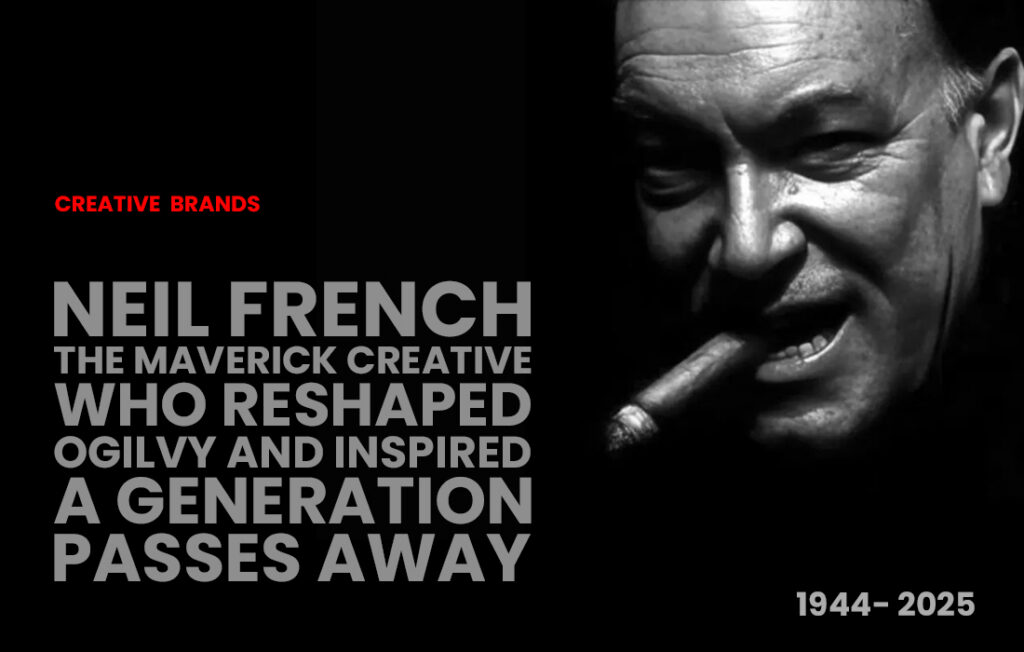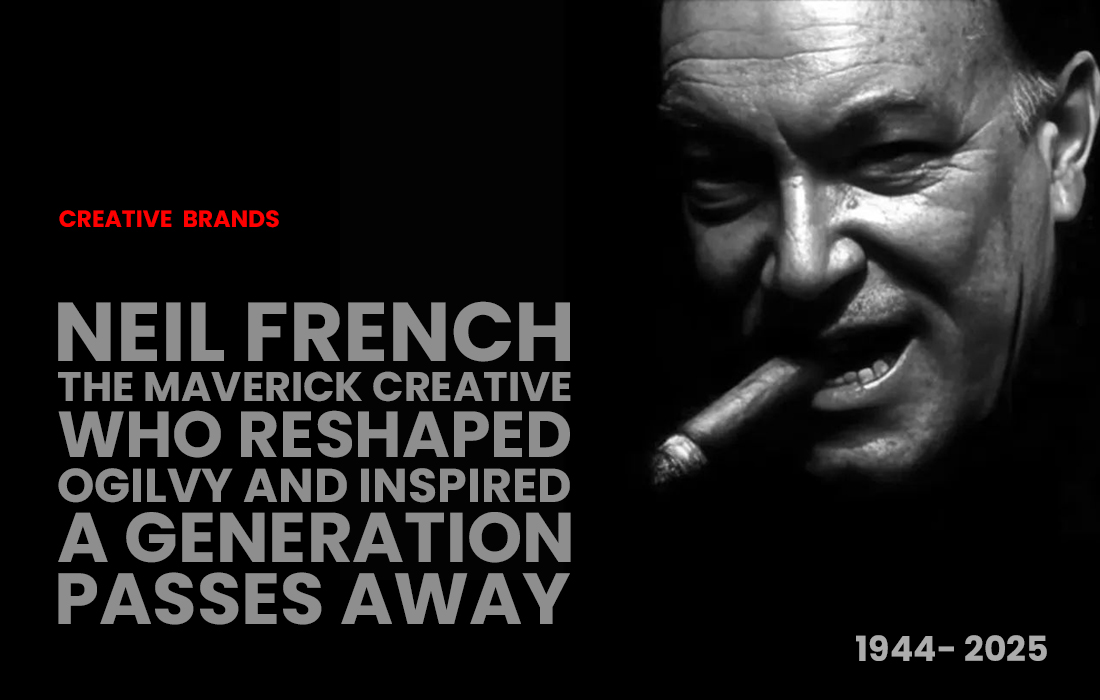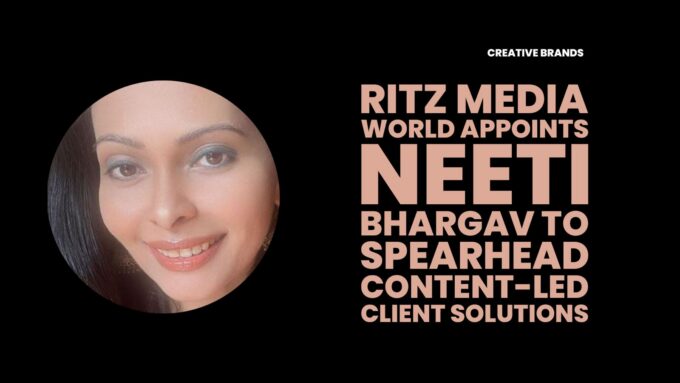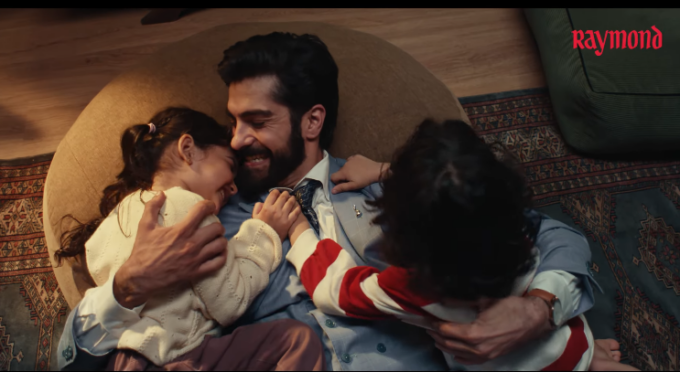Neil French (1944- 2025), one of the most influential creative leaders in modern advertising and a towering figure in global copywriting, passed away November 20 in Mallorca, Spain leaving behind a legacy that shaped not only the culture of Ogilvy but the creative standards of the global advertising industry. Widely regarded as a genius of language and among the finest copywriters the profession has ever produced, French’s impact was felt from Asia to Europe to the Americas, carried forward through the ideas he championed, the talent he nurtured, and the creative systems he engineered.

Neil French (1944- 2025), one of the most influential creative leaders in modern advertising and a towering figure in global copywriting, passed away November 20 in Mallorca, Spain leaving behind a legacy that shaped not only the culture of Ogilvy but the creative standards of the global advertising industry. Widely regarded as a genius of language and among the finest copywriters the profession has ever produced, French’s impact was felt from Asia to Europe to the Americas, carried forward through the ideas he championed, the talent he nurtured, and the creative systems he engineered.
As Ogilvy’s Global Chief Creative Officer, French held a rare kind of authority—one rooted not in hierarchy but in belief. He believed fiercely in the power of craft, in the rigour of thinking, in the poetry of a well-built line, and in the idea that creativity could be both playful and profound. Within the walls of Ogilvy and across the industry, he was known as a creative provocateur, a cultural builder, and, above all, a writer’s writer.
Among his most enduring contributions was the creation of the Cadre, a table-league system of creative excellence that transformed how Ogilvy motivated, challenged, and celebrated its people. What began as a friendly internal competition quickly grew into a defining element of Ogilvy’s creative culture—one that sharpened instincts, deepened camaraderie, and sparked countless award-winning ideas. For many young creatives, the Cadre was their first real taste of creative rivalry and their earliest recognition from a global stage.
French also pioneered the now-legendary Ogilvy Hothouses, immersive creative gatherings that pulled the best minds from across Ogilvy’s global network into a single room — or, more accurately, into a centuries-old castle. Touffou, David Ogilvy’s residence in France, became the birthplace of some of the network’s boldest ideas. The hothouses were intense, demanding, and exhilarating, and they set a new benchmark for what collaborative creativity could look like. The very first client to benefit from this creative crucible was Dove, a partnership that would go on to spark some of the most iconic and meaningful brand work of the 21st century.
To the people of Ogilvy, French will be remembered as a formidable leader who drove not just great campaigns but a culture of lasting creative ambition. His leadership in Asia marked the beginning of a new era for the network—one where Asian offices consistently delivered global-standard work—and his influence only expanded as he took on worldwide creative stewardship.
Across the advertising world, Neil French’s name has long been synonymous with mastery of the written word. His copy was sharp, musical, mischievous, and unexpectedly human. He wrote with a distinct voice at a time when many sought formulas. He found poetry in persuasion, humour in the everyday, and elegance in simplicity. For countless creatives, studying a Neil French line was a lesson in what advertising could be when it aspired to be literature.
His career was not conventional, and that was precisely the point. French moved through the industry with the swagger of a storyteller, the precision of a craftsman, and the unpredictability of an artist who understood that great work required both discipline and rebellion. He inspired loyalty, sparked debate, and commanded respect—often all at once.
As news of his passing reverberates through agencies and creative communities worldwide, tributes are pouring in from those who were shaped by his mentorship, challenged by his standards, or influenced by his writing. For many, the loss feels personal. For the industry, it marks the end of an era.
Neil French leaves behind not just campaigns but methods, rituals, and a creative ethos that continues to influence how teams think, write, and collaborate. His legacy lives on in every copywriter who sweats over a sentence, in every creative team that knows competition can be friendly and elevating, and in every brand idea that emerges from the friction of brilliant minds working together.
He changed the work. He changed the culture. And in doing so, he changed advertising itself.
Neil French is gone, but his words—and the world he helped shape—will endure.

















Leave a comment